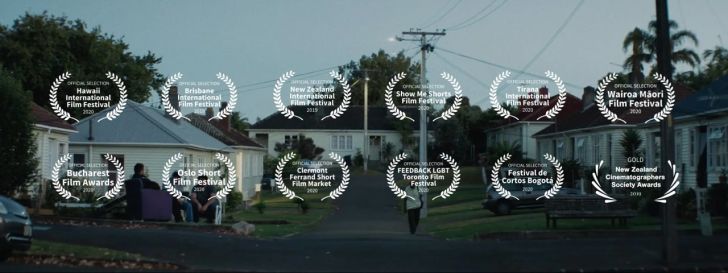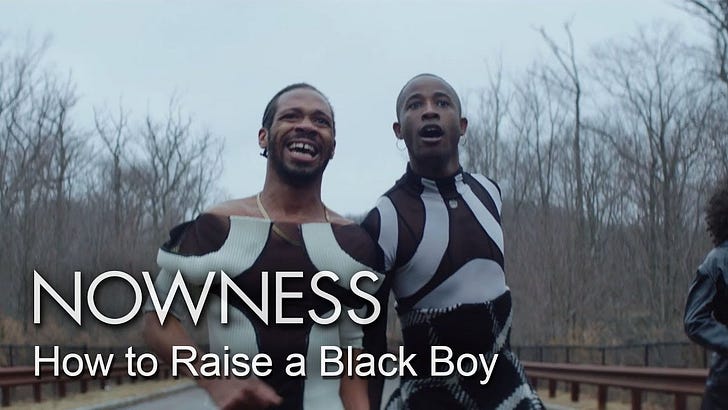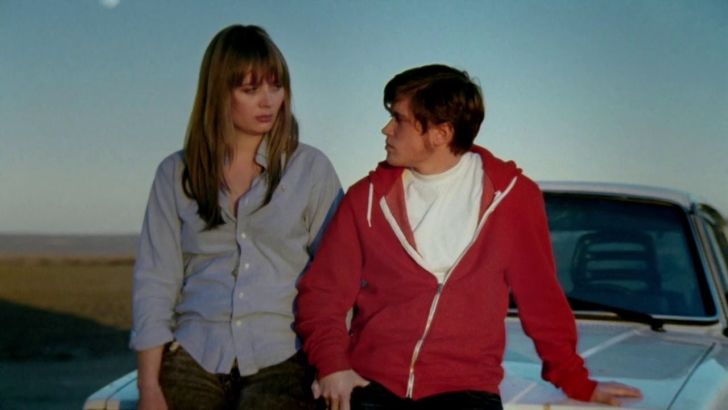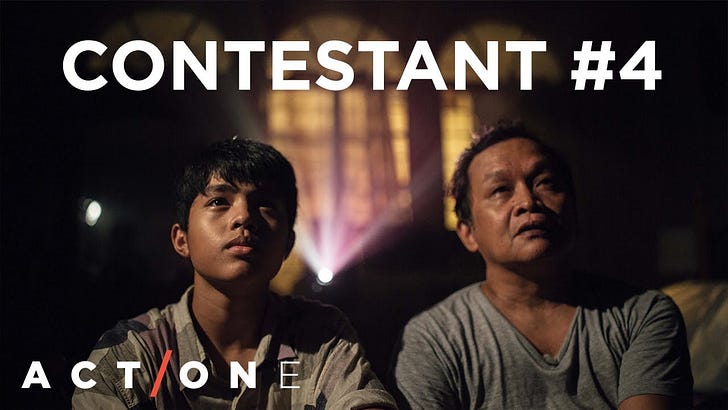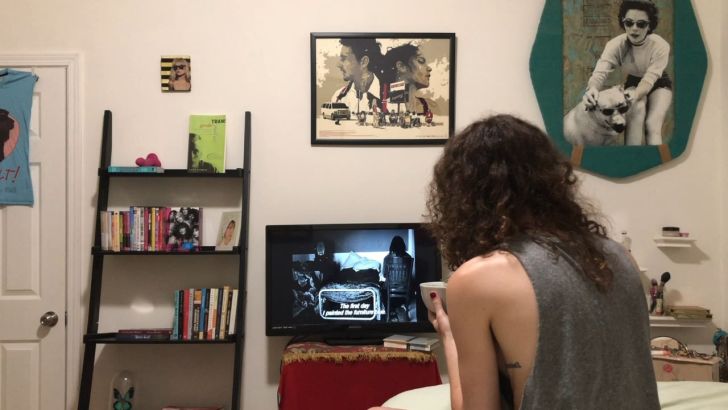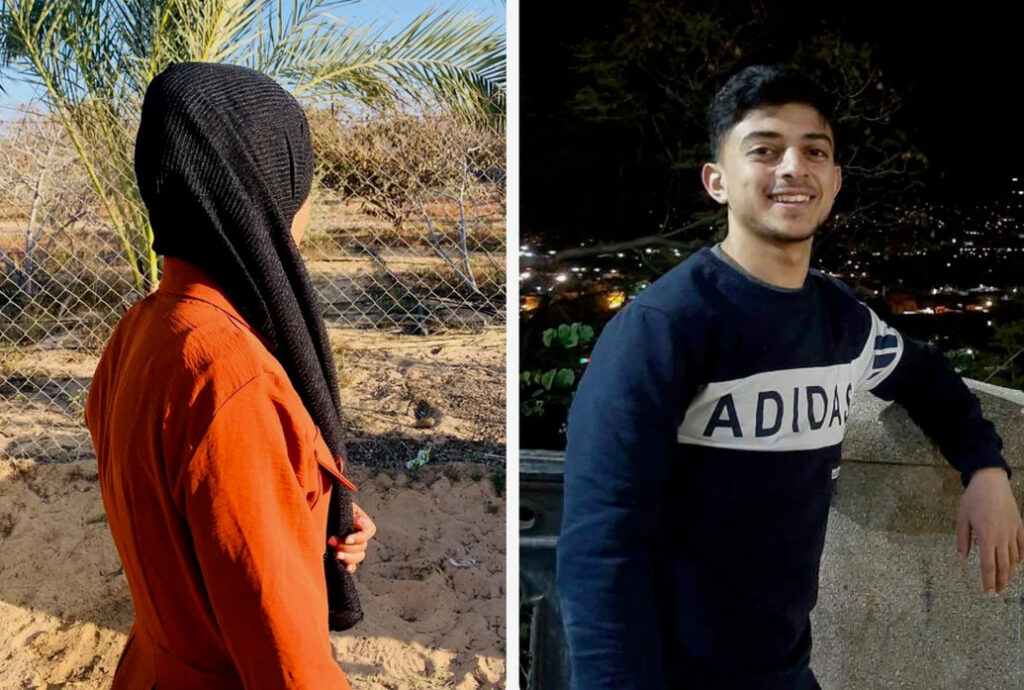Eight queer short films are marching for Pride and resistance
Happy Pride! Today’s films are not all necessarily about Pride events, but they all exemplify what Pride means to me: protest and revolution combined with art, celebration, and queer joy.
However, Pride is always in danger of being coopted by those who would use their oppressive power to stymie liberation. So this Pride, as all Prides, I reject the widespread silence about racism and violence towards Black and Indigenous queer people, especially Black trans women, Indigenous women and girls, and Two-Spirit people, all of whom are murdered at astronomically rates in the United States. I reject the homonationalism employed by countries like the United States and Israel who claim to be “gay-friendly” while committing genocide and embodying settler colonialism. I reject carceral narratives that frame having cops at Pride or adding more hate crime laws to the books as keeping queer people “safe”, while what they actually do is disproportionately imprison Black and Indigenous people and sex workers. I reject “no kink at pride” discourse that erases queer political history and attempts to frame kink as threatening. I reject the rainbow capitalism that has made so many Pride marches into corporate showcases, even as businesses can (and will) withdraw their support whenever it appears unprofitable.
Over at deeper cuts, I started a new short series on women’s basketball, beginning with a post on how Black women – particularly Black queer women – have been and are foundational to the sport in the United States, which also seems fitting for June.
Today’s mutual aid request is for Kadyx (Kaydx/Divine/ẹmi/y’all), a forcibly displaced nomad, multiply-disabled and chronically ill Black Queer Trans Neuroexpansive SpiritOracle Survivor and Spiritual Warrior of femme ministry, who is raising money for Divine’s survival. You can subscribe to ẹmi’s newsletter and give various other ways through the links at Kadyx’s linktree.
You can find content notes for the films at the very end of the post; see the full list of things I usually warn for. Also, I include pronouns for people mentioned when I can find them explicitly stated. When I cannot, I either use what I see being used for them in articles about them, or I just use their names.
Open Your Eyes, directed by Julia Jansch, is a visual poem film based on a cento written by Vanessa Angelica Villareal, which is performed by Nancy Lorenza Green. It calls to the past and present of Pride, where Villareal’s powerful call to the radicality, resistance, connection, and joy exemplified by queer leaders is juxtaposed with ordinary queer people today going about their lives in New York.
“I remember watching footage of the 1990 NYC Pride Parade and being struck by the defiance, the volume, the strength of so many voices chanting, we’re here, we’re queer, get used to it, and the chilling power of the moment of silence afterwards. Pride back then was a chorus of resistance, each voice this unique gem, this particular story, that I wanted to capture in this poem,” poet Villareal said in a filmmaker’s note. “So a cento, or a form made up of lines from other poems, and in this case, also from quotes from other documentaries and activists, felt the most appropriate for this film. The cento form itself is a chorus, a documentary, a documentation, an acknowledgement of those who came before.”
Open Your Eyes
Black Is Me, created by Elliot Blue, is a dance film that begins with a short clip of a Black Lives Matter protest in Baltimore. The footage is in black and white and was shot from an FBI helicopter, immediately calling attention to the violent hyper-surveillance that treats all Black people as potential “threats” to the state. The film then transitions to Blue’s performance, filmed in a studio, where the lighting, setting, music, and camera angles work together to express Blue’s identity and resistance.
I was particularly taken by the lighting design, which I know very little about, but even I could tell how effective the changing colors and use of shadows were. This is fitting, because Blue is a multidisciplinary artist and works a lot in lighting and filmmaking! I wasn’t able to find out too much more about Blue’s thoughts on Black Is Me specifically, but Blue themselves has, in the past, co-created online film festivals that center Black and trans voices, as well as teaching film workshops, with a focus on filmmakers who experience social marginalization.
Black Is Me
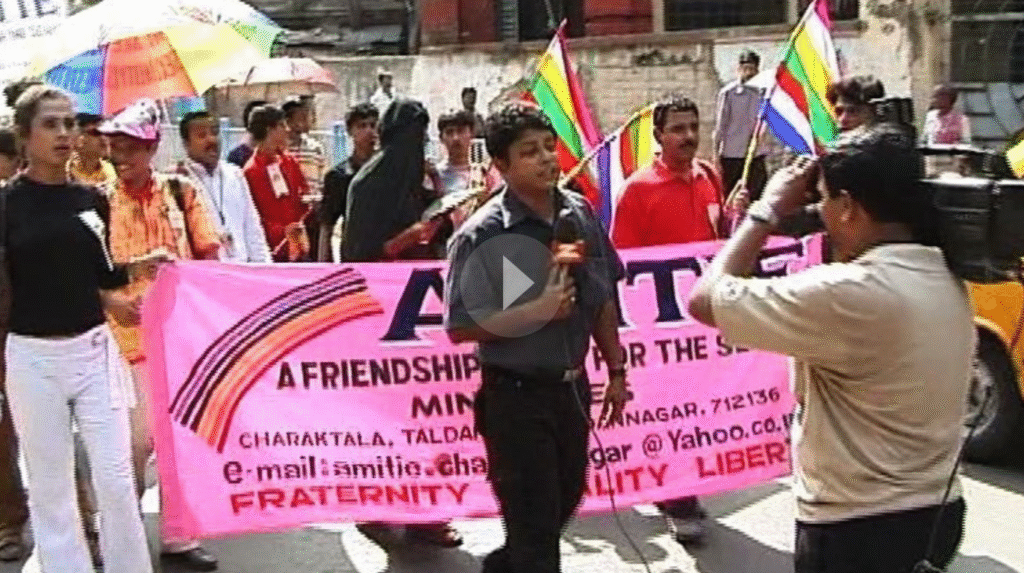
Calcutta Pride March 2004, created by Tejal Shah, is about the second Pride March held in Kolkata. India’s first public queer demonstration took place in June 1999, where a small group of trans, queer, hijra, and gay activists took to the streets of Kolkata for a “friendship walk” to protest homophobia and transphobia. Shah’s film is primarily documentation of the 2004 Pride March – with interviews from leaders, participants, bystanders, and even a plain-clothes intelligence officer – but it’s also somewhat personal, with Shah’s own narration grounding us in the issues of media representation of India’s LGBT community. Shah is a multidisciplinary artist working in photography, sound, video, installation, and performance art, and their work has long explored gender and queer resistance in India.
Calcutta Pride March 2004
Warrior Song [Edzi’u], directed by Kaas Cross, is a music video by queer Tahltan and Tlingist artist Edzi’u, who creates soundscapes that feature audio from various sources – this song includes clips of a relative of theirs from Dease Lake – to challenge settler colonialism. “‘Warrior Song’ is about getting up every day and fighting for sovereignty, whether that be fighting inside your own heart to dismantle internalized colonial narratives, fighting for land and water on the front lines, or fighting to exist in a capitalist world to support your family,” Edzi’u said in an interview with Buzz Music. “I have existed in all those spaces, as many Indigenous people and communities do. ‘Warrior Song’ is a prayer and a promise to continue on another moment, minute, or day to fight for self-determination however the listener needs.”
Warrior Song [Edzi’u]
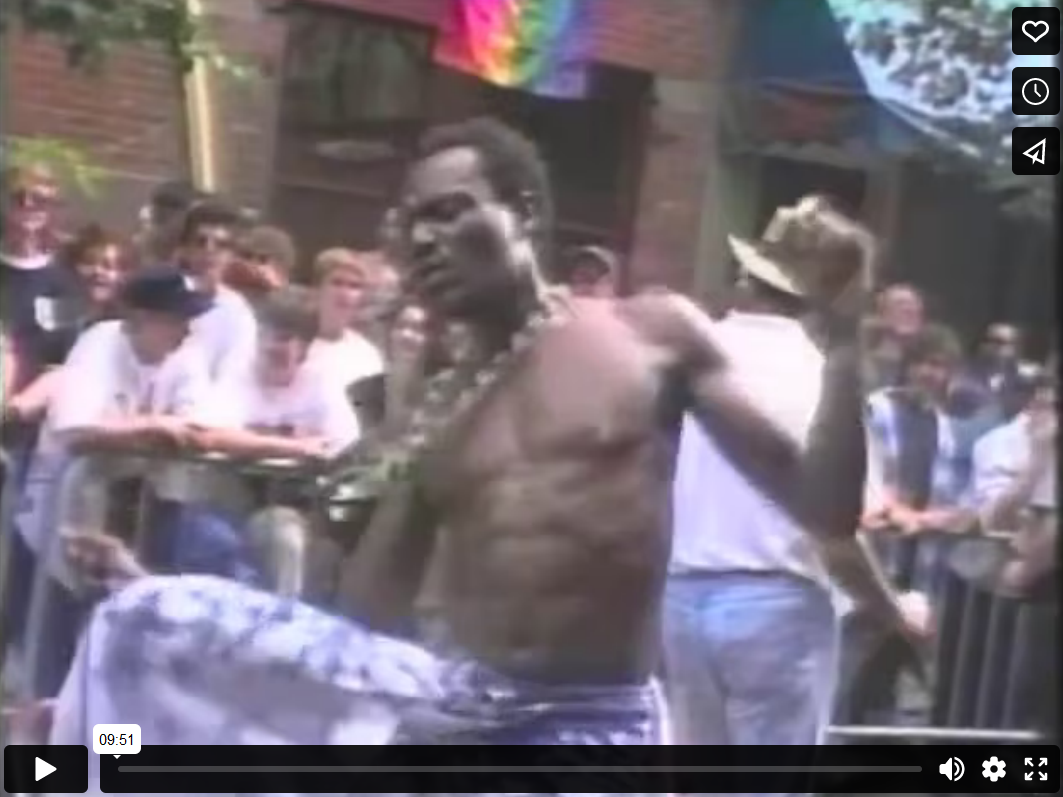
Via New York, directed by Kagendo Murungi, features conversations with a number of African queer activists in New York City, including from folks from South Africa, Kenya, and Nigeria. They discuss a wide range of issues, including colorism and homophobia within their communities; the complexities of coming to the United States, where they’ve faced anti-Blackness but have also been able to connect with Black Power movements; their relationship to the struggle against South African apartheid; the impact of Christianity on their identities and relationships; how they discovered themselves as queer; and more.
The film is surprisingly short for the number of topics it addresses, and after watching it, I was left wanting to hear more about the impact of South African apartheid on the interviewees. In particular, I was interested in how the 1976 Soweto Youth Uprising created consciousness for a gay movement in Black townships, as well as how the apartheid government framed homosexuality as a threat associated with communism and the anti-apartheid struggle.
However, the film is still incredibly profound and meaningful even with its short runtime, exemplifying the work and values of creator and lifelong LGBTQ rights activist and feminist Kagendo Murungi. Kagendo, among other accomplishments, helped institute the position of Africa program officer at the International Gay & Lesbian Human Rights Commission, founded the film and cultural organization Wapinduzi Productions and served as its executive producer for 26 years, and directed and produced many other documentary films. Kagendo died in 2017 at her home in Harlem.
Via New York
Pride 2019: Meet the Intersex Activists of New York City, created by Bloomberg Quicktake, features interviews with Sean Saifa Wall, Tanya Brown, and Aleksander Berezkin, three intersex organizers sharing their experiences and work, including nonconsensual medical procedure like castration that they endured as children, which drive their activism to end intersex surgery. They also speak to the points of commonality and difference between intersex folks and other members of the queer community, as well as the solidarity they’ve found with other intersex activists.
Pride 2019: Meet the Intersex Activists of New York City
Intifada on the Dance Floor [Bashar Murad], created and performed by Bashar Murad, demonstrates that dancing can be about revolution. The word intifada, which means “shaking off” or “uprising” in Arabic, has received anti-Palestinian and Islamophobic treatment. Bashar Murad, whose music video Antenne I’ve previously recommended, brings its true anti-colonial history and meaning to the nightclub, combining the fight for Palestinian liberation with the artistry and rhythm of music, as well as humor.
“Humor and satire have always been tools that Palestinians use to make light of this horrible reality we’ve been forced to live in,” Murad said in an interview with them. “I’m taking all these serious subjects that have affected me and making light of them, whether it’s the pressures of getting married, toxic masculinity, or living under occupation. Resorting to humor can be a coping mechanism and a form of resistance to our brutal reality.
Warning: this film has bright flashing lights and stuttery cuts interspersed throughout.
Intifada on the Dance Floor [Bashar Murad]
Queer Heroes, directed by Kate Jessop, is an experimental film collaboration, where fourteen animators played a version of the surrealist game “exquisite corpse”. Each animator was given a queer hero to render for ten seconds as they wished, then gave their last frame to the next artist to create their first frame. It’s fascinating to see the different styles flow into each other with such fluid transitions, and the sound design helps set the atmosphere for each queer hero as well. If any of the heroes are hard to figure out from their experimental rendering, don’t worry, they are all described at the end!
Warning: this film has bright flashing lights and stuttery cuts interspersed throughout.
Queer Heroes


